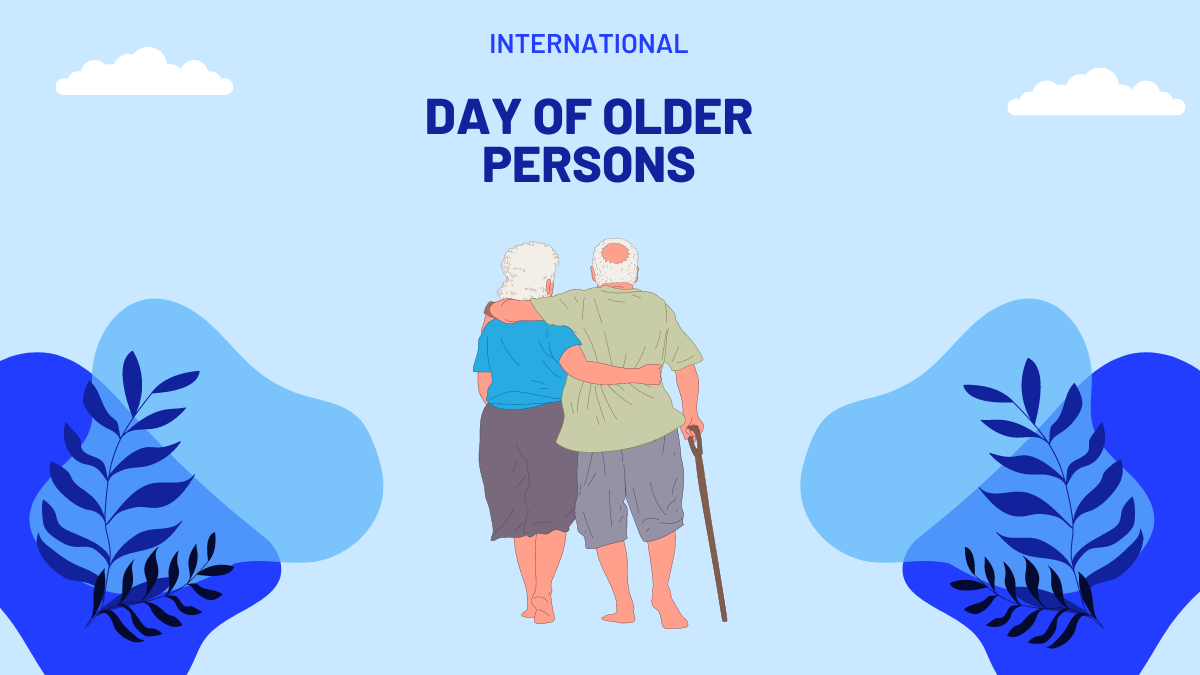The 34th commemoration of the United Nations International Day of Older Persons, observed annually on October 1st, brings into focus the critical issue of population ageing and its profound impact on societies worldwide. This year’s theme, “Ageing with Dignity: The Importance of Strengthening Care and Support Systems for Older Persons Worldwide,” underscores the urgent need to address the challenges and opportunities presented by this demographic shift.
Global Demographic Trends
The world is experiencing a significant transformation in its age structure:
- Life expectancy at birth now exceeds 75 years in half of the world’s countries, a remarkable increase of 25 years since 1950.
- By 2030, older persons are projected to outnumber youth globally, with this increase occurring most rapidly in developing countries.
- The global share of the older population (defined as those aged 65 years or older) is expected to rise from less than 10% in 2021 to around 17% by 2050.
- The number of older people has tripled from approximately 260 million in 1980 to 761 million in 2021.
These trends highlight the importance of promoting health, preventing illnesses, and providing comprehensive care throughout the entire life course.
The Changing Caregiving Landscape
The demographic shift has significantly transformed the caregiving landscape:
- There is an increasing demand for comprehensive healthcare, care, and social support services.
- The needs span a wide range, encompassing both paid and unpaid support in formal and informal settings.
- There is a growing requirement for specialized care, particularly for older persons with conditions such as dementia.
Key Focus Areas for 2024
1. Strengthening Care and Support Systems
The 2024 commemoration will bring together experts to discuss:
- Policies, legislation, and practices that strengthen care and support systems for older persons.
- The urgent need to expand training and educational opportunities in geriatrics and gerontology.
- Addressing the global shortage of care workers.
- Recognizing the diverse contributions of caregivers.
2. Protecting Human Rights
The event will emphasize the importance of:
- Protecting the human rights of both caregivers and care recipients.
- Promoting person-centered approaches to care that respect the dignity, beliefs, needs, and privacy of older persons.
- Upholding the right of older persons to make decisions about their care and quality of life.
Historical Background
The International Day of Older Persons has a rich history:
- December 14, 1990: The United Nations General Assembly designated October 1 as the International Day of Older Persons (resolution 45/106).
- 1982: The Vienna International Plan of Action on Ageing was adopted by the World Assembly on Ageing.
- 1991: The General Assembly adopted the United Nations Principles for Older Persons (resolution 46/91).
- 2002: The Second World Assembly on Ageing adopted the Madrid International Plan of Action on Ageing, aiming to promote the development of a society for all ages.
The Importance of Supportive Environments
In societies with aging populations, it is crucial to:
- Adjust to the increasing number of elderly individuals with diverse functional capacities.
- Recognize that the ability to perform essential functions is influenced by both individual capacity and social and physical environments.
- Create supportive environments that help older individuals maintain their activity levels and independence as they age.
Summary of the News
| Summary/Static | Details |
| Why in the news? |
|




 Central Excise Day 2026: Why 24 February...
Central Excise Day 2026: Why 24 February...
 World Peace and Understanding Day 2026: ...
World Peace and Understanding Day 2026: ...
 International Mother Language Day 2026: ...
International Mother Language Day 2026: ...








